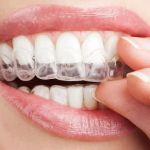The Importance of Mouth Hygiene: Keeping Your Smile Healthy and Bright
- What is Mouth Hygiene?
- Why Mouth Hygiene Matters
- Common Mouth Hygiene Mistakes to Avoid
- Best Tips for Maintaining Optimal Mouth Hygiene
- Real-Life Example: How Proper Mouth Hygiene Changed a Smile
What is Mouth Hygiene?
Mouth hygiene refers to the practice of keeping your mouth, teeth, gums, and tongue clean to prevent oral health issues like cavities, gum disease, and bad breath. A proper oral hygiene routine typically includes brushing your teeth, flossing, and using mouthwash regularly. The goal is not just to avoid dental problems, but to maintain a healthy and fresh mouth, contributing to your overall well-being.
It’s important to understand that mouth hygiene goes beyond just brushing your teeth. It includes taking care of your gums, cleaning your tongue, and ensuring your mouth remains free from harmful bacteria. When neglected, these bacteria can lead to serious conditions like tooth decay, gum disease, and even systemic health problems.
Why Mouth Hygiene Matters
1. Prevents Tooth Decay and Cavities
Proper mouth hygiene is essential for preventing tooth decay. When plaque and bacteria build up on your teeth, they can erode enamel and lead to cavities. Regular brushing with fluoride toothpaste helps remove plaque and protects your teeth from decay.
2. Prevents Gum Disease
Gum disease, or periodontal disease, is a common result of poor mouth hygiene. Plaque buildup can inflame the gums, leading to conditions like gingivitis and periodontitis. Good oral hygiene practices help prevent these issues by keeping your gums healthy.
3. Reduces Bad Breath
Bad breath, or halitosis, is often caused by the buildup of food particles, bacteria, and plaque in your mouth. By practicing proper mouth hygiene, you can maintain a fresh, clean mouth and avoid the embarrassment of bad breath.
Common Mouth Hygiene Mistakes to Avoid
1. Brushing Too Hard
Many people think that brushing harder will give them a cleaner mouth. However, brushing too hard can damage your enamel and irritate your gums. Use a gentle, circular motion with a soft-bristled toothbrush to avoid harming your mouth.
2. Skipping Flossing
While brushing is essential, flossing is just as important for maintaining mouth hygiene. Flossing removes food particles and plaque from between your teeth, areas that your toothbrush can’t reach. Skipping this step can lead to cavities and gum disease.
3. Not Replacing Your Toothbrush Regularly
Over time, the bristles on your toothbrush wear out, making it less effective at cleaning your teeth. Dentists recommend replacing your toothbrush every 3-4 months, or sooner if the bristles are frayed.
Best Tips for Maintaining Optimal Mouth Hygiene
1. Brush Twice a Day
Brushing your teeth at least twice a day, once in the morning and once before bed, is crucial for good mouth hygiene. Use a fluoride toothpaste and brush for at least two minutes each time to ensure you remove plaque and food particles.
2. Floss Daily
Flossing is just as important as brushing when it comes to mouth hygiene. Make sure to floss between each of your teeth to remove any food particles and plaque that may have accumulated.
3. Use Mouthwash
Mouthwash can help rinse away bacteria, prevent bad breath, and provide an extra layer of protection against plaque. Choose an alcohol-free mouthwash with fluoride for added protection.
4. Regular Dental Checkups
Even with excellent home care, regular dental checkups are essential for maintaining optimal mouth hygiene. Your dentist can spot any issues early and provide professional cleanings to remove plaque buildup.
Real-Life Example: How Proper Mouth Hygiene Changed a Smile
Meet Jessica, a 34-year-old who had struggled with frequent cavities and gum inflammation for years. After a visit to her dentist, she learned that her mouth hygiene habits weren’t as effective as they should have been. Her dentist recommended that she start flossing daily, brush her teeth for at least two minutes, and use mouthwash regularly.
Within a few months, Jessica noticed a huge improvement. Her gum health improved, her cavities became less frequent, and she even had fresher breath. Now, Jessica swears by the importance of mouth hygiene and encourages others to prioritize it, just as she did. This story is a testament to how simple changes in daily habits can lead to long-lasting improvements in oral health.







 Signature Smiles on Parham5.0 (4 review)
Signature Smiles on Parham5.0 (4 review) Think Better Life - Orofacial Pain, TMJ & Sleep Disorder Solutions Chicago4.0 (11 review)
Think Better Life - Orofacial Pain, TMJ & Sleep Disorder Solutions Chicago4.0 (11 review) Canton Kids Dentistry: Dr. Farshid Nia5.0 (2 review)
Canton Kids Dentistry: Dr. Farshid Nia5.0 (2 review) Kelly Orthodontics5.0 (14 review)
Kelly Orthodontics5.0 (14 review) Scott Soderquist, DDS, MS0.0 (0 review)
Scott Soderquist, DDS, MS0.0 (0 review) Safari Dental & Orthodontics4.0 (1362 review)
Safari Dental & Orthodontics4.0 (1362 review) The Importance of Oral Health Education During Pregnancy for a Healthy Pregnancy
The Importance of Oral Health Education During Pregnancy for a Healthy Pregnancy Best Tips for Brushing Your Teeth Properly for Healthy Gums: Essential Techniques for Oral Health
Best Tips for Brushing Your Teeth Properly for Healthy Gums: Essential Techniques for Oral Health Why Skipping Dental Checkups Can Lead to Bigger Oral Health Problems
Why Skipping Dental Checkups Can Lead to Bigger Oral Health Problems Advantages of Porcelain Dental Restorations
Advantages of Porcelain Dental Restorations How Can Diabetes Cause Tooth and Gum Problems? Preventing and Managing Oral Health Issues
How Can Diabetes Cause Tooth and Gum Problems? Preventing and Managing Oral Health Issues Healthy Habits for Promoting Good Oral Health and Hygiene: Tips for a Healthy Smile
Healthy Habits for Promoting Good Oral Health and Hygiene: Tips for a Healthy Smile